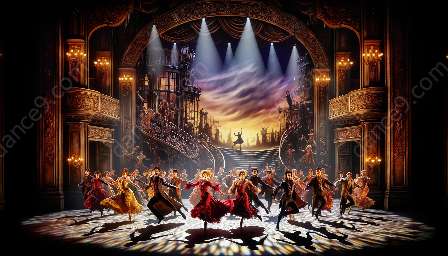Choreography is an art form that involves the creation and arrangement of movements to convey a particular message or concept. As choreographers develop their thematic content, they must consider a myriad of ethical implications that impact their creative choices and the reception of their work. In this article, we will delve into the ethical considerations involved in choosing thematic content for choreography and how it influences choreographic thematic development.
Ethical Considerations in Choosing Thematic Content for Choreography
When selecting themes for choreography, the choreographer inevitably steps into an array of ethical considerations. These considerations include cultural sensitivity, representation, and the potential impact of the choreographic content on the audience. It is essential for choreographers to recognize the power of movement and its capacity to convey narratives and provoke emotional responses, as these factors directly intersect with ethical considerations.
Cultural Sensitivity
Cultural appropriation and misrepresentation are critical ethical issues when considering thematic content for choreography. Choreographers must be mindful of the cultural origins of the movements they incorporate and ensure they do not exploit or misappropriate the traditions and practices of a particular culture. Respecting the origins and meanings of movements and themes is vital in maintaining the integrity of the art form and honoring the cultures from which the choreography may draw inspiration.
Representation
Another ethical consideration involves the representation of diverse perspectives within choreographic content. It is crucial for choreographers to avoid reinforcing stereotypes or marginalizing particular groups through their thematic choices. Instead, they should strive to amplify underrepresented voices and experiences, promoting inclusivity and empathy within their work. By considering the impact of representation in their choreography, the artist can contribute to the broader cultural dialogue and foster a more equitable and understanding society through dance.
Audience Impact
Choreographers must also consider the potential impact of their thematic content on the audience. Certain themes and movements may trigger emotional responses or discomfort in viewers. It is the choreographer's responsibility to navigate these potential reactions thoughtfully, seeking to challenge and provoke without causing harm or distress. This ethical consideration encourages choreographers to engage in critical reflection on the potential implications of their work and consider the well-being of their audience.
Choreographic Thematic Development and Ethical Integrity
As choreographers navigate the ethical considerations associated with choosing thematic content, they inevitably shape the trajectory of their choreographic thematic development. The ethical integrity of a choreographic work influences its impact and reception, underscoring the importance of mindful and responsible artistic choices.
Authenticity and Integrity
Integrating ethical considerations into the process of thematic development promotes authenticity and integrity within the choreographic work. By engaging in thorough research, consultation with relevant communities, and introspective analysis, choreographers can ensure that their thematic content reflects a deep understanding and respect for the subject matter. By upholding ethical standards, choreographers uphold the credibility of their work and contribute to a more respectful and inclusive artistic landscape.
Impact and Legacy
Choreographic thematic development intertwined with ethical considerations can leave a lasting impact and legacy. By prioritizing ethical integrity, choreographers contribute to the evolution of dance as a platform for constructive conversations and meaningful expression. Ethical considerations become an enduring part of the choreographic process, shaping not only the content of the dance pieces but also their broader societal significance.
Conclusion
Choosing thematic content for choreography involves complex ethical considerations that span cultural sensitivity, representation, and audience impact. These ethical dimensions significantly influence the choreographic thematic development, integrating integrity and authenticity into the artistic process. By recognizing the broad implications of their thematic choices, choreographers can nurture a dance landscape that embraces ethical responsibility and fosters deeper connections with audiences and communities.






































